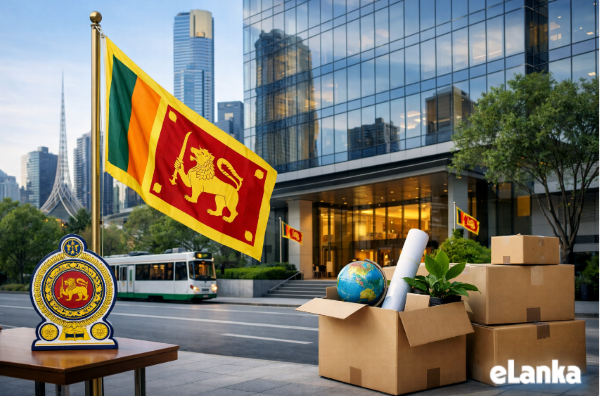A major cultural festival celebrated by Sinhalese and Tamil communities in Sri Lanka – ” Sinhala and Tamil New Year ” – By Malsha – elanka
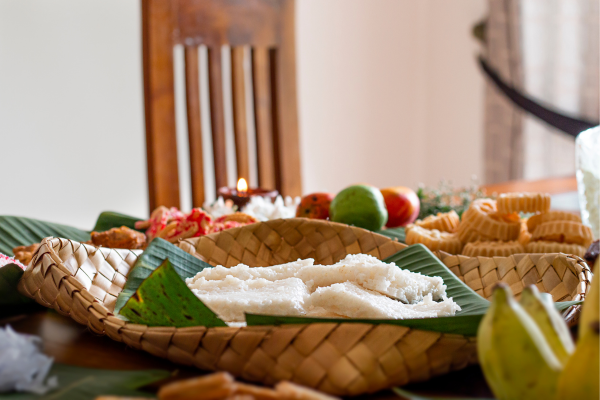
Avurudu, also known as Sinhala and Tamil New Year, is a major cultural festival celebrated by Sinhalese and Tamil communities in Sri Lanka and around the world. The essence of Avurudu is to mark the beginning of a new year and to bring joy, happiness, and prosperity to everyone.
The Avurudu festival falls on the 13th or 14th of April each year, marking the end of the harvesting season and the beginning of the new solar year. It is a time for families and friends to come together, to celebrate, to share traditional foods, and to exchange gifts.
One of the main rituals of Avurudu is the “punya kalaya,” a period of time where people stop all work and engage in religious activities. During this time, people visit temples, make offerings, and seek blessings for the new year.
Another important aspect of Avurudu is the preparation of traditional foods, such as kiribath (milk rice), kevum (oil cakes), and kokis (crispy cookies). These foods are typically made using traditional methods and are shared among family and friends.
The Avurudu festival also includes various cultural events such as the Avurudu Kumari pageant, traditional dances, and music performances. These events showcase the rich cultural heritage of Sri Lanka and provide an opportunity for people to come together and celebrate their traditions.
In essence, Avurudu is a time to renew relationships, to celebrate the harvest, and to welcome the new year with joy and happiness. It is a time to reflect on the past and look forward to the future with hope and optimism.
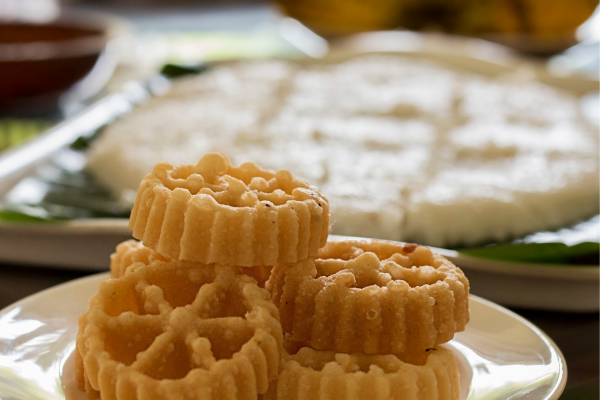
The celebration of Avurudu, or Sinhala and Tamil New Year, has several cultural, historical, and religious significance. Here are some of the reasons why Avurudu is celebrated:
- Renewal of relationships: Avurudu is a time for families, friends, and communities to come together and strengthen their relationships. It is an occasion to forgive past grievances and to start afresh with renewed hope and love.
- Harvest festival: Avurudu marks the end of the harvesting season and the beginning of the new year in the agricultural calendar. Farmers celebrate the festival by thanking the deities for a bountiful harvest and praying for another successful year.
- Religious significance: Avurudu has religious significance for both Sinhalese Buddhists and Tamil Hindus. Buddhists believe that the festival marks the enlightenment of Lord Buddha, while Hindus celebrate the occasion as the start of the Tamil New Year.
- Cultural heritage: Avurudu is deeply rooted in Sri Lanka’s cultural heritage and is celebrated with various traditional customs and practices. The festival provides an opportunity for Sri Lankans to showcase their rich cultural heritage to the world.
- Symbol of unity: The celebration of Avurudu brings together people of different ethnicities, religions, and cultures. It is a symbol of unity, harmony, and diversity that showcases Sri Lanka’s unique cultural identity.
In essence, the celebration of Avurudu is a way to express gratitude, strengthen relationships, and celebrate the country’s cultural and religious diversity. It is a time for reflection, renewal, and rejuvenation, as well as a symbol of hope and unity for the future.
How to celebrate sinhala people sinhala and Tamil new year
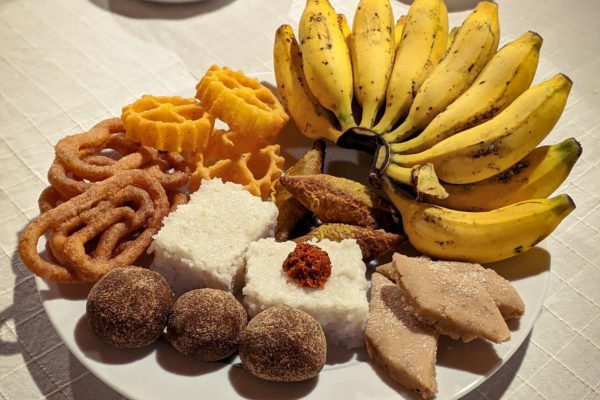
The Sinhala and Tamil New Year is a joyous occasion that is celebrated with great enthusiasm by the Sinhalese people in Sri Lanka. Here are some ways in which they typically celebrate the festival:
- Cleaning and decorating homes: In preparation for the new year, many people clean and decorate their homes with flowers, traditional oil lamps, and colorful decorations.
- Preparing traditional food: The festival is known for its traditional sweetmeats, such as kokis, kavum, and athirasa, which are made with rice flour, jaggery, and coconut milk. Families also prepare other traditional dishes, such as kiribath (rice cooked in coconut milk) and other curries.
- Lighting the hearth: On the day of the New Year, a hearth is traditionally lit in the home using auspicious materials such as coconut shells, and the first meal of the year is cooked on the hearth.
- Visiting family and friends: The festival is an occasion for families and friends to come together and exchange gifts, such as sweets and betel leaves.
- Participating in traditional games and events: Many villages and communities organize traditional games and events such as tug-of-war, pillow fights, and traditional dances.
- Exchanging greetings: People exchange greetings with each other, wishing each other a prosperous and happy new year.
These are some of the common ways in which the Sinhalese people in Sri Lanka celebrate the Sinhala and Tamil New Year. The festival is a time for families to come together, celebrate, and strengthen bonds with each other.
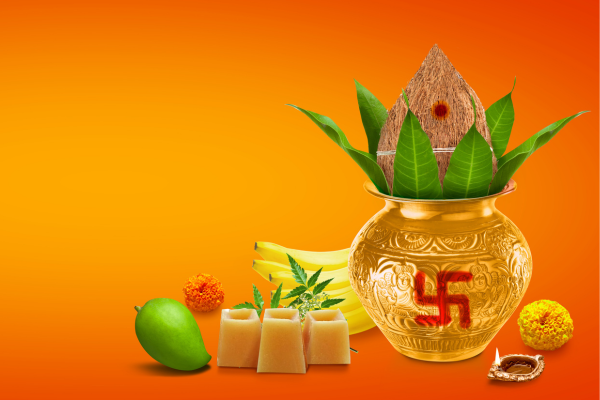
The Sinhala and Tamil New Year is an important festival for both the Sinhalese and Tamil communities in Sri Lanka, and Tamil people have their own unique way of celebrating the occasion. Here are some ways in which Tamil people typically celebrate the Sinhala and Tamil New Year:
- Decorating homes: Tamil households also clean and decorate their homes with flowers, banana leaves, and colorful decorations to welcome the new year.
- Preparing traditional food: Tamil people prepare traditional sweets such as Mung Kavum, Athirasam, and Poli. They also cook savory dishes such as sambar, rasam, and vegetable curries.
- Visiting family and friends: The New Year is a time for people to visit family and friends, exchange gifts, and share meals together.
- Wearing new clothes: Tamil people typically wear new clothes on the day of the New Year as a symbol of new beginnings.
- Lighting lamps: Lighting oil lamps in the home and in public places is a common practice during the New Year period.
- Performing religious rituals: Many Tamil people also perform religious rituals such as visiting temples, praying, and making offerings to the gods.
- Playing traditional games: Tamil people also participate in traditional games such as uri adithal (pot breaking), kabbadi, and tug-of-war.
Overall, the Sinhala and Tamil New Year is a time for Tamil people to come together with their families and communities, celebrate their culture and traditions, and welcome the new year with joy and optimism.
The traditional foods of Sinhala and Hindu New Year
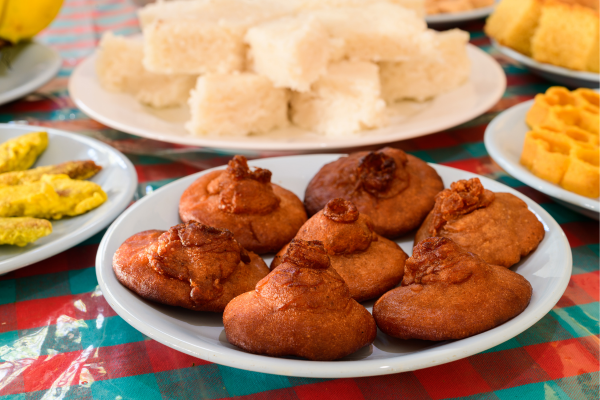
Sinhala and Hindu New Year, also known as Avurudu or Aluth Avurudda, is a time when families and communities come together to prepare and share traditional foods. Here are some of the traditional foods that are commonly associated with the festival:
- Kiribath (milk rice) – This is a traditional dish made from rice cooked in coconut milk. It is usually served for breakfast on the first day of the festival.
- Kavum – These are small, deep-fried sweets made from rice flour and treacle. They come in different shapes and sizes, and are a popular snack during the festival.
- Kokis – These are deep-fried, crispy cookies made from rice flour and coconut milk. They are shaped using special moulds and are a popular snack during the festival.
- Asmi – This is a sweet made from rice flour, treacle, and coconut milk. It is fried in hot oil and then dipped in treacle syrup to give it a sweet and sticky coating.
- Aasmi – A sweet made from rice flour, sugar and coconut milk, similar to Asmi, but not dipped in treacle syrup.
- Aluwa – This is a sweet made from rice flour, jaggery, and coconut. It is usually cut into diamond shapes and served as a dessert.
- Mung Kevum – A deep-fried sweet made from green gram flour and jaggery.
These traditional foods are prepared in advance and are often shared with neighbors, friends, and relatives during the festival. They are an important part of the festival and symbolize the spirit of togetherness and community.



















